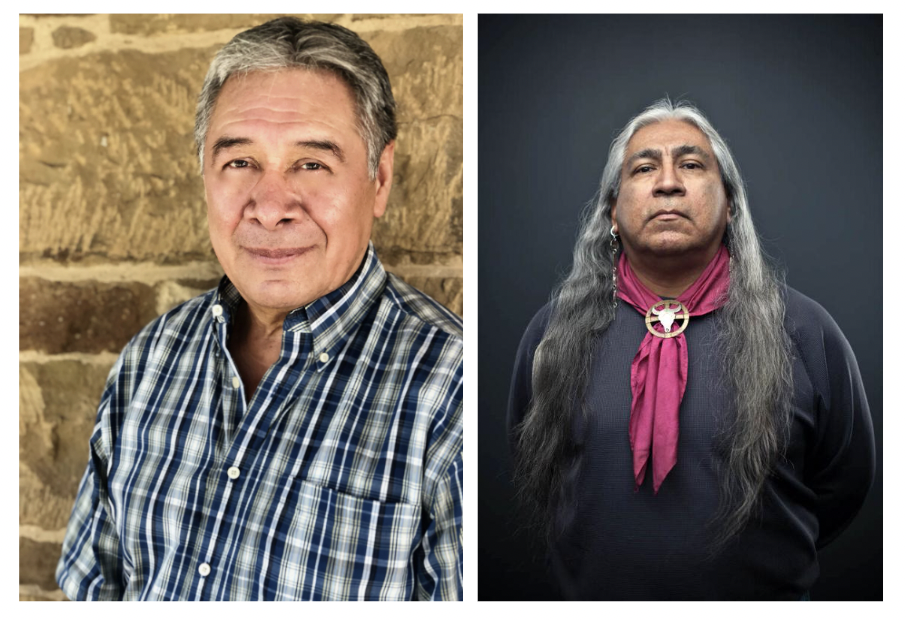
- Details
- By Native News Online Staff
Northeastern State University is set to host three esteemed Native American scholars at the 52nd Annual Symposium on the American Indian.
This year’s symposium, themed “Reclamation for an Indigenous Future,” will be held from April 7-12. The event is free and open to the public.
Throughout the week, attendees will have the opportunity to engage in conference-style presentations focused on reclaiming identity and culture, led by prominent Indigenous scholars.
Among the keynote speakers is Dr. Donald Fixico, an enrolled member of the Sac & Fox Nation and a descendant of the Shawnee, Mvskoke, and Seminole peoples. A regents' and distinguished foundation professor of history at Arizona State University, Fixico will deliver a presentation titled “Modern Tribal Sovereignty in the 21st Century” on April 9. His talk will explore the progress and achievements of modern tribal sovereignty among the Five Nations – Cherokee, Muscogee, Seminole, Chickasaw, and Choctaw.
Dr. Cornel Pewewardy, a member of the Comanche and Kiowa nations, serves as an associate professor of political science at the University of Central Oklahoma. On April 10, he will present “The Hunt for Red Pedagogy,” offering an analysis of General Philip Sheridan’s well-known American aphorism and the political strategies that shaped the “Indian Problem” during the Indian War Campaigns of the 1860s.
Dr. Sky Wildcat, a citizen of the Cherokee Nation with Mvskoke heritage, is a former Miss Cherokee and an alumna of NSU. Drawing from her experience as a recent doctoral graduate, Wildcat will lead a discussion on April 11 about the lessons she has learned regarding reclamation. Her presentation will also incorporate insights from her dissertation research.
The NSU Symposium on the American Indian began in 1972 as a one-day event and has since grown into a week-long, curated communal gathering. The symposium features distinguished speakers, traditional arts vendor booths, concurrent workshops, film screenings, and the highly anticipated NSU powwow, attracting visitors from across the U.S. and beyond.
More Stories Like This
Native Students Can Win $5,000 Scholarship, International Distribution in Pendleton Design ContestAmerican Indian College Fund Raises Alarm Over Plan to Shift Native Programs Away From the Dept. of Education
MacKenzie Scott Foundation Gives $5 Million Contribution to Little Priest Tribal College
Tribal Leaders Push Back on Dismantling of U.S. Department of Education
American Indian College Fund Names 12 Student Ambassadors for 2025–26
Help us defend tribal sovereignty.
At Native News Online, our mission is rooted in telling the stories that strengthen sovereignty and uplift Indigenous voices — not just at year’s end, but every single day.
Because of your generosity last year, we were able to keep our reporters on the ground in tribal communities, at national gatherings and in the halls of Congress — covering the issues that matter most to Indian Country: sovereignty, culture, education, health and economic opportunity.
That support sustained us through a tough year in 2025. Now, as we look to the year ahead, we need your help right now to ensure warrior journalism remains strong — reporting that defends tribal sovereignty, amplifies Native truth, and holds power accountable.
 The stakes couldn't be higher. Your support keeps Native voices heard, Native stories told and Native sovereignty defended.
The stakes couldn't be higher. Your support keeps Native voices heard, Native stories told and Native sovereignty defended.
Stand with Warrior Journalism today.
Levi Rickert (Potawatomi), Editor & Publisher


